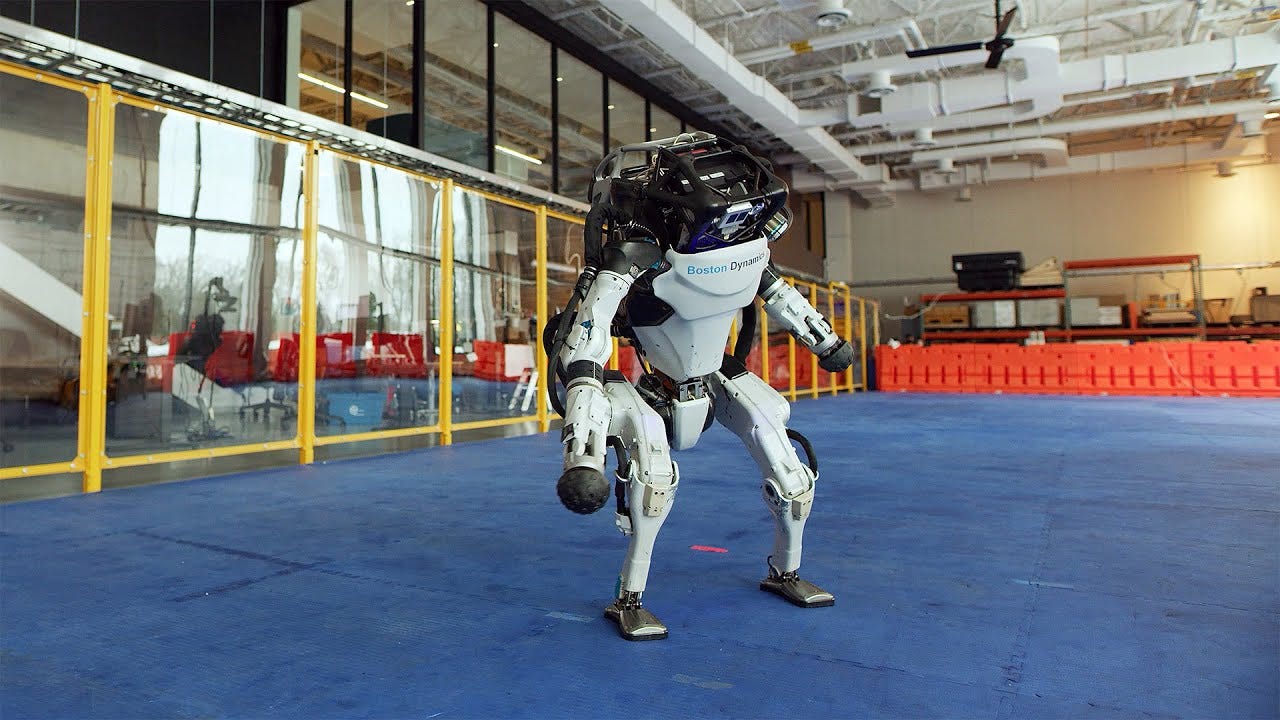AI Fatigue. My Brain Hurts and My Eyes are Twitching
The rise of the machines (and my migraines)
Remember when AI was all the rage?
The shiny new toy promising to revolutionize everything from how we order pizza to how we perform brain surgery? Yeah, me too.
But somewhere between the 50th article about sentient toasters and the 100th chatbot that couldn't understand my simple request for a cat meme, something snapped.
I have developed a severe case of AI fatigue.
And I'm pretty sure I'm not alone.
What the Heck is AI Fatigue Anyway? (Besides a Real Downer)
Before we dive headfirst into this existential crisis, let's define our terms.
AI fatigue, in the simplest terms, is that feeling of overwhelming exhaustion you get from the constant bombardment of AI news, advancements, and frankly, hype. It's like being stuck in a never-ending tech conference where everyone's speaking a language you barely understand, but they're all very excited about it.
Think of it this way: your brain is a powerful computer, constantly processing information. But when that information becomes an endless stream of jargon-filled articles about machine learning, neural networks, and the impending robot apocalypse, your mental CPU starts to overheat.
The Science Behind the Suck (It's Not Just You)
Now, I'm not just being grumpy Luddite (Luddite is defined by Oxford Dictionary, as “a person opposed to new technology or ways of working”) here.
There's actual science behind this feeling of overwhelming "blah."
Our brains are wired to crave novelty and stimulation. But when we're constantly exposed to the same type of information (in this case, all things AI), our dopamine receptors start to dull. It's like eating your favorite ice cream every day for a month—eventually, that initial thrill is replaced by a sense of "meh."
Furthermore, the rapid pace of AI development can trigger feelings of anxiety and uncertainty. Will robots take my job? Will AI become sentient and enslave humanity? These are legitimate questions (okay, maybe not the robot enslavement part), and the constant speculation can be mentally draining.
Symptoms of AI Fatigue (Because Misery Loves Company)
So, how do you know if you're suffering from AI fatigue? Here are a few telltale signs:
You start using "AI" as a curse word. ("AI this, AI that! Just give me a human customer service rep already!")
Your eyes glaze over every time you see the words "machine learning" or "deep learning." (They sound like something out of a bad sci-fi movie, anyway.)
You have recurring nightmares about being chased by Boston Dynamics robots. (Those things are creepy, even without the AI.)
You find yourself longing for the simpler days of dial-up internet. (At least it was slow enough to give your brain a break.)
Coping Mechanisms (Or How I Learned to Stop Worrying and Love the Algorithm)
Okay, so maybe AI fatigue is a real thing. But before we all retreat to off-grid cabins and start communicating via carrier pigeon, let's talk about some coping mechanisms.
Curate your information intake. Just like you wouldn't eat junk food all day, every day, don't overload your brain with an endless stream of AI news. Be selective about what you read and watch.
Focus on the practical applications of AI. Instead of getting bogged down in the theoretical, look for examples of how AI is being used to solve real-world problems. This can help you appreciate the technology without feeling overwhelmed by its potential.
Take breaks from technology. Yes, I know, this is easier said than done. But even a few minutes of screen-free time each day can do wonders for your mental health.
Find humor in the absurdity of it all. Let's face it, some of the things happening in the AI world are just plain weird. Don't be afraid to laugh at the absurdity of it all.
Remember that AI is a tool, not a threat. AI is ultimately a tool created by humans, for humans. It's up to us to use it responsibly and ethically.
The Future of AI (and My Sanity)
AI is here to stay, and that's not necessarily a bad thing. But it's important to be mindful of the potential downsides, including the very real phenomenon of AI fatigue. By taking steps to manage our information intake and focus on the positive aspects of AI, we can avoid burnout and embrace the future with open minds (and well-rested brains).
Now, if you'll excuse me, I'm going to go for a walk in the woods and pretend that robots don't exist.
If you would like to connect, create, and collaborate with other humans, join the Connected Community Project and become a member with other like minded smart people who absolutely love it today.
👉 If you enjoy reading this post, feel free to share it with friends! Or feel free to click the ❤️ button on this post so more people can discover it on Substack








I love AI. Well the concept of it anyway. But keeping up with the advances in AI is become too labour intensive compared to the benefits.